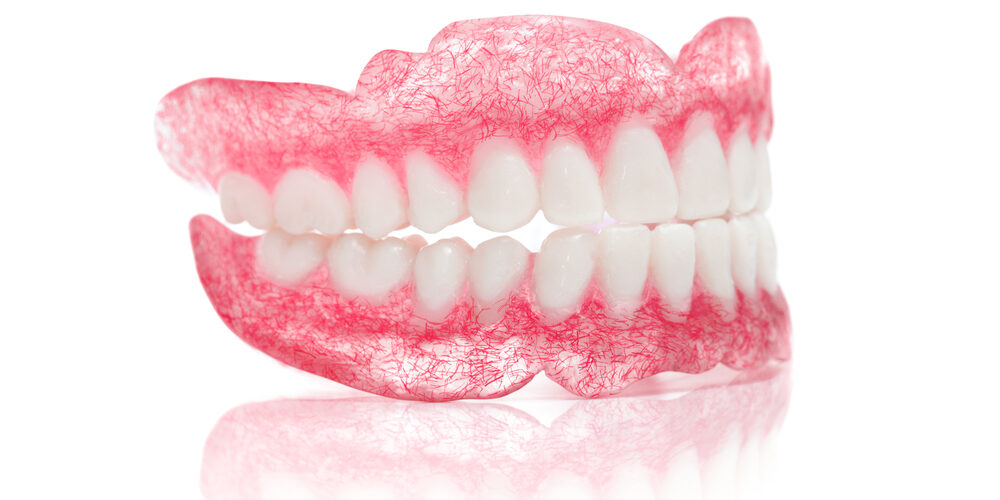Do your dentures slip? Are you tired of mouth sores, sore gums, and difficulty eating and speaking? Until recently, denture patients had to rely on natural suction or adhesives to hold false teeth securely in place. Over time, however, the underlining of dentures rubs against natural gum ridges and the ridges wear smooth. At this point and every two to four years, a patient needs his false teeth relined.
As for esthetics, old dentures may appear larger than your natural teeth, making them look fake. No one wants to share a smile with obviously fake, large teeth. Modern dentures are made with contemporary dental materials that make both the teeth and the gum portions look natural.
You’re living in a time when dentistry has excellent options to replace your teeth. Now, dentures can be securely attached to your jaws with dental implants. You’ll never experience loose, wobbling, slipping dentures or the need to reline your false teeth. In today’s blog, you’ll learn:
- What implant-retained dentures are
- Benefits of implant-retained dentures
- What the procedure is for getting implants
- Care and longevity of implant-retained false teeth
- How to find out if implant-retained dentures are right for you
Implant-Retained Dentures
If you have generally good overall and oral health, you will probably qualify for implant-retained false teeth. Issues like gum disease, poor jaw density, bruxism (clenching and grinding teeth), and some health conditions and treatments can make a person ineligible for dental implants. In the case of poor bone density, a bone graft may improve candidacy.
Usually, four to six dental implants can reliably anchor one arch of false teeth. Dentures are fabricated with snaps, and they click in place onto implants. Implant-retained dentures can be fixed or removable, based on the patient’s desires. For patients with age-related cognitive impairment, we suggest fixed implant-retained dentures to avoid misplacing or breaking the prosthetics.
Benefits of Implant-Retained Dentures
- Will not slip, wobble, or fall out when eating a meal
- Strong enough to allow the patient no dietary restrictions
- Implants help protect the integrity of the jawbone, reducing the chance of deterioration
- Dentures will not rub against gum ridges and cause sores
- Dental implants can last a lifetime
- Easy care and maintenance
- Look natural and attractive
- Feel confident eating in public
The Implant Placement Procedure
To secure implants in the jaw, a brief outpatient surgery is required. During this procedure, the dentist will insert small, screw-shaped dental implants into the jawbone. Over about six to nine months, your jawbone will naturally grow around the implant posts. At the end of this period, the patient will return for exposure of implant heads and attachment of abutments. The abutments connect a set of false teeth to the patient’s jaw.
All in all, getting dental implants to secure your false teeth will take under one year, unless you require prerequisite bone grafting or gum disease treatments.
Care and Longevity of Implant-Retained False Teeth
Implant-retained dentures are easy to maintain. Use a soft nylon denture brush for twice-daily brushing. Floss daily. Do not smoke or drink an excessive amount of alcohol. Visit Dr. Matthew Bridges every six months or as often as directed. Your dental implants should endure your lifetime. If the false teeth wear down or become otherwise damaged, they may need replacement.
Are Implant-Retained Dentures Right for You?
The only way to know for certain if you should replace your traditional false teeth with implant-retained dentures is to visit our Duncan dentist’s office for an evaluation and consultation. Dr. Matthew Bridges is accepting new patients and will be happy to answer all of your questions at your appointment. Call 580-255-4880 to schedule your dental implant consultation today!







